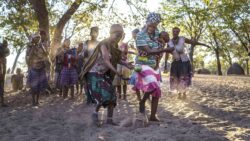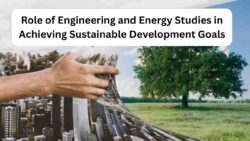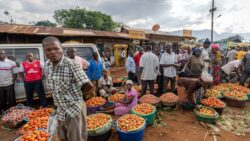The opportunity to study or conduct research abroad is a dream for many students and academic staff members across Africa. But for most, the idea of navigating an international exchange — with all its logistics, paperwork, and cultural shifts — can feel overwhelming. That’s why the ARISE II Programme was designed not only to provide mobility opportunities, but also to make the entire process smooth, supportive, and empowering.

ARISE II, which stands for Africa Regional International Staff / Student Exchange, supports academic mobility across four African regions, with a special focus on agriculture, food security, health sciences, engineering, and energy. The programme offers nearly 50 mobility slots for Master’s and Doctoral students, as well as staff exchanges, across partner institutions. But how does it actually work?
The Application and Selection Process
The first step in the ARISE II journey is applying through your home university, which must be a participating institution in the ARISE consortium. Calls for applications are usually shared on the ARISE II website or institutional portals.
Applicants must submit:
-
Academic transcripts and certificates
-
A statement of purpose and proposed research plan
-
Letters of recommendation
-
Proof of English or French language proficiency (depending on host country)
-
A valid passport
Each application is reviewed based on academic merit, alignment with the programme’s themes, and the applicant’s potential for impact. Importantly, ARISE II encourages applications from female candidates and disadvantaged groups, ensuring equal opportunity for all.
Once selected, successful candidates are matched with a host university based on research fit and availability.
What Happens After Selection?
After being accepted, students and staff receive a full package of logistical and academic support to prepare them for the exchange. This includes:
-
Visa application assistance
-
Travel bookings (flights, local transport)
-
Accommodation arrangements
-
Pre-departure orientation
-
Health insurance coverage
-
Contact information for on-site support teams
Upon arrival, participants are welcomed by the host institution’s international office, where they receive an introduction to local customs, university resources, and safety guidelines.
Academic activities begin shortly after arrival, and include:
-
Course participation or lab research (for students)
-
Collaborative project work and teaching (for staff)
-
Joint seminars and workshops
-
Regular academic supervision
-
Access to libraries, labs, and research tools
ARISE II mobility is designed to build real-world skills, promote networking, and strengthen research capacity through international collaboration.
Life During the Mobility and Beyond
Living and working in a new country can be both exciting and challenging. That’s why ARISE II ensures that scholars receive ongoing pastoral and academic support during their stay. Many institutions organize cultural exchange activities, student forums, and community outreach projects that allow scholars to engage with local culture and feel part of a broader network.
In many cases, participants also build strong friendships and research partnerships that continue long after the mobility ends. These experiences lead to:
-
Joint research publications
-
Cross-border innovation projects
-
Policy recommendations for regional development
-
Career advancement opportunities
-
Stronger academic networks across Africa
Upon completion of their mobility, participants return home equipped with valuable knowledge, international exposure, and new skills, which they can then apply to local challenges in their communities or universities.
In conclusion, ARISE II is more than a scholarship programme — it’s a journey that transforms individuals and institutions alike. From application to return, each stage of the mobility is carefully designed to ensure success, impact, and personal growth. With ARISE II, Africa’s academic community is connecting, collaborating, and leading the way toward a more resilient and sustainable future.




